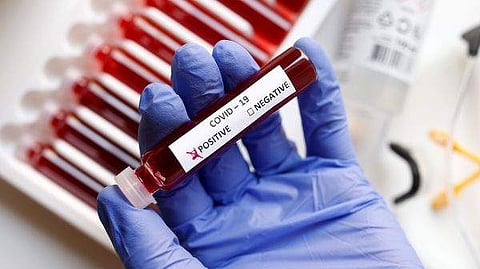

As COVID-19 testing becomes more widely available, it's vital that health care providers and public health officials understand its limits and the impact false results can have on efforts to curb the pandemic, say, researchers, including one of Indian-origin.
The study, published in the journal Mayo Clinic Proceedings, calls attention to the risk posed by overreliance on COVID-19 testing to make clinical and public health decisions.
The sensitivity of reverse transcriptase-polymerase chain reaction (RT-PCR) testing and overall test performance characteristics have not been reported clearly or consistently in medical literature, the study said.
"As a result, health care officials should expect a less visible second wave of infection from people with false-negative test results," said study co-author Priya Sampathkumar from Mayo Clinic in the US. "RT-PCR testing is most useful when it is positive. It is less useful in ruling out COVID-19," she added.
A negative test often does not mean the person does not have the disease, and test results need to be considered in the context of patient characteristics and exposure, the researcher said.
Even with test sensitivity values as high as 90 per cent, the magnitude of risk from false test results will be substantial as the number of people tested grows.
"In California, estimates say the rate of COVID-19 infection may exceed 50% by mid-May 2020," Sampathkumar said." With a population of 40 million people, two million false-negative results would be expected in California with comprehensive testing. Even if only one per cent of the population was tested, 20,000 false-negative results would be expected," she added.
The authors also cited the effects on health care personnel. If the COVID-19 infection rate among the more than four million people providing direct patient care in the US were 10 per cent -- far below most predictions -- more than 40,000 false-negative results would be expected if every provider were tested.
While dealing with the enormity of the growing COVID-19 pandemic, it's important for public health officials to stick to principles of evidence-based reasoning regarding diagnostic test results and false-negatives. health care workers and patients may be necessary. Development of highly sensitive tests or combinations of tests is needed urgently to minimize the risk of false-negative results, the researchers said.
Improved RT-PCR testing and serological assays -- blood tests that identify antibodies or proteins present when the body is responding to infections such as COVID-19 -- are needed, they added.
